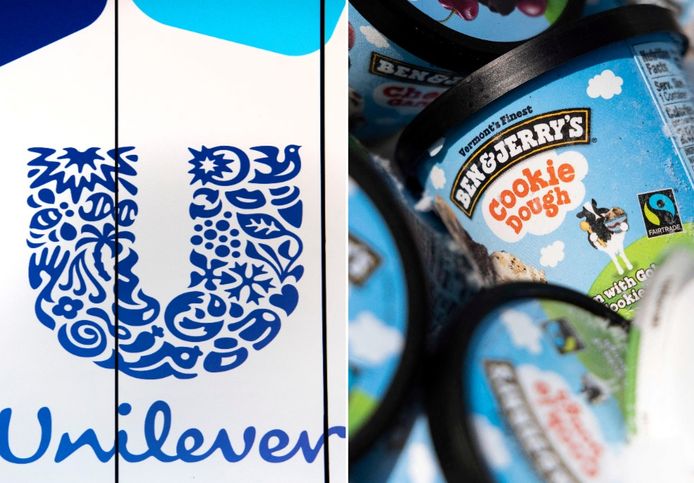The ice cream maker is suing its parent company over control of its business interests in Israel, after Ben & Jerry’s decision last year to stop selling in Israeli settlements in the occupied West Bank
Ben & Jerry’s on Tuesday filed a lawsuit against its parent company, Unilever, to block the sale of the ice cream maker’s business interests in Israel to an Israeli company.
The complaint, filed in the US District Court of Manhattan, said the sale threatened to undermine Ben & Jerry’s brand integrity. The ice cream maker’s board had maintained independence to protect its interests when the Unilever conglomerate acquired it in 2000.
“Ben & Jerry’s is an American institution. An institution that is known for the principled, progressive stances it takes on various societal issues, both domestically and internationally,” the company said in its court filing.
“This social integrity is as important to Ben & Jerry’s as the ice cream it makes, which it began producing in 1978.”
Last week, Unilever announced that it would be selling Ben & Jerry’s business interests in Israel to Avi Zinger’s American Quality Products, the current Israeli licensee of the ice cream brand. The sale would effectively reverse a decision made by the company to stop selling its ice cream in Israeli settlements in the Israeli-occupied West Bank.
Following Unilever’s announcement last week, Ben & Jerry’s released a statement saying that it does “not agree with it”.
“We continue to believe it is inconsistent with Ben & Jerry’s values for our ice cream to be sold in the Occupied Palestinian Territory.”
READ ALSO: PA’s Abbas, Hamas’ Haniyeh meet for first time in nearly six years in Algeria
Ben & Jerry’s has long sought to portray itself as a supporter of liberal causes and has issued statements supporting the Black Lives Matter movement and other progressive movements on social media.
However, it went silent in May 2021 after Israel launched air strikes on the Gaza Strip. Then in July 2021, the company released a statement saying it believed it was “inconsistent with our values for Ben & Jerry’s ice cream to be sold in the Occupied Palestinian Territory”, but added that it would “stay in Israel through a different arrangement”.
The announcement was received with praise and further questions from pro-Palestinian activists and advocates, but Israeli leaders met the news with scorn. Several US states also moved to divest from Unilever as a result of Ben & Jerry’s decision.
According to an earlier report, Ben & Jerry’s ice cream blasted parent company Unilever for selling the Vermont-based firm’s operations in Israel to a local licensee — effectively circumventing a boycott of Jewish settlements on the occupied West Bank.
“We continue to believe it is inconsistent with Ben & Jerry’s values for our ice cream to be sold in the Occupied Palestinian Territory,” Ben & Jerry’s tweeted on Wednesday.
The official Twitter account of the ice cream maker founded by Ben Cohen and Jerry Greenfield posted a short tweet thread on Wednesday — hours after Unilever announced its agreement to sell Ben & Jerry’s to Avi Zinger of American Quality Products.
Zinger announced on Wednesday that he will resume sales of the Ben & Jerry’s brand in both Hebrew and Arabic throughout Israel proper as well as the West Bank territories Israel captured in the 1967 Six-Day War.
“We are aware of the Unilever announcement,” Ben & Jerry’s tweeted on Wednesday.
“While our parent company has taken this decision, we do not agree with it.”
Ben & Jerry’s continued: “Unilever’s arrangement means Ben & Jerry’s in Israel will be owned and operated by AQP. Our company will no longer profit from Ben & Jerry’s in Israel.”
We continue to believe it is inconsistent with Ben & Jerry's values for our ice cream to be sold in the Occupied Palestinian Territory.
(?3/3)
— Ben & Jerry's (@benandjerrys) June 29, 2022
The Unilever announcement brings to an end the saga that began last year when Ben & Jerry’s said that it would no longer offer its products to consumers in Israeli settlements built on occupied land.
Unilever, the Dutch-British conglomerate whose properties include big-name brands such as Hellmann’s, Dove, Lipton, and Breyers, said at the time that it had no legal right to force Ben & Jerry’s to reverse course.
When Unilever acquired Ben & Jerry’s more than 20 years ago in a deal valued at $326 million, the Vermont-based ice cream maker insisted that its board would have autonomy on matters related to social and political issues.
But Unilever maintained the power to sell parts of the business as it deemed fit.
The boycott by Ben & Jerry’s created a public relations headache for Unilever as pro-Israel politicians in the US announced economic retaliatory measures.
The states of New York, New Jersey, Arizona, Florida, Illinois and Texas have divested a combined $1 billion in pension fund investments from Unilever, concluding Ben & Jerry’s action violated their anti-boycott laws.
The Israeli government hailed the decision by Unilever to sell the brand to Zinger as a “victory over anti-Semites” on Wednesday.













